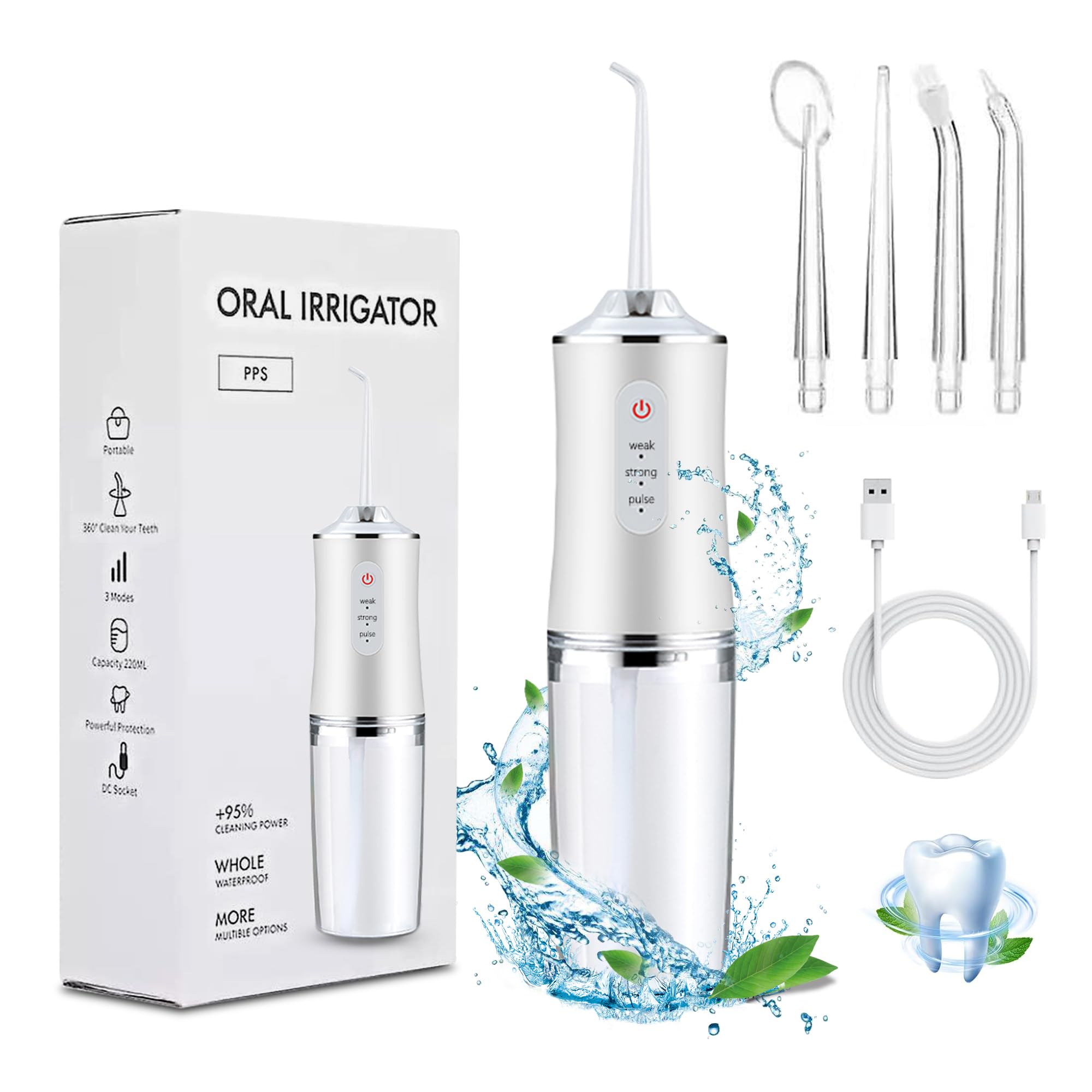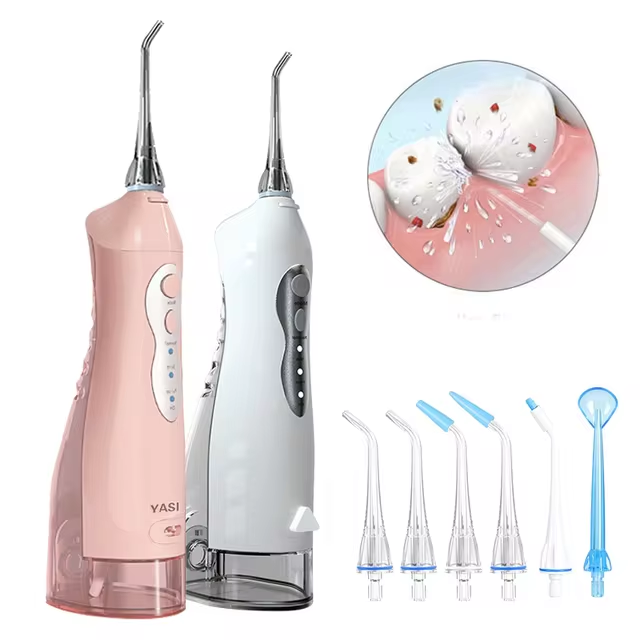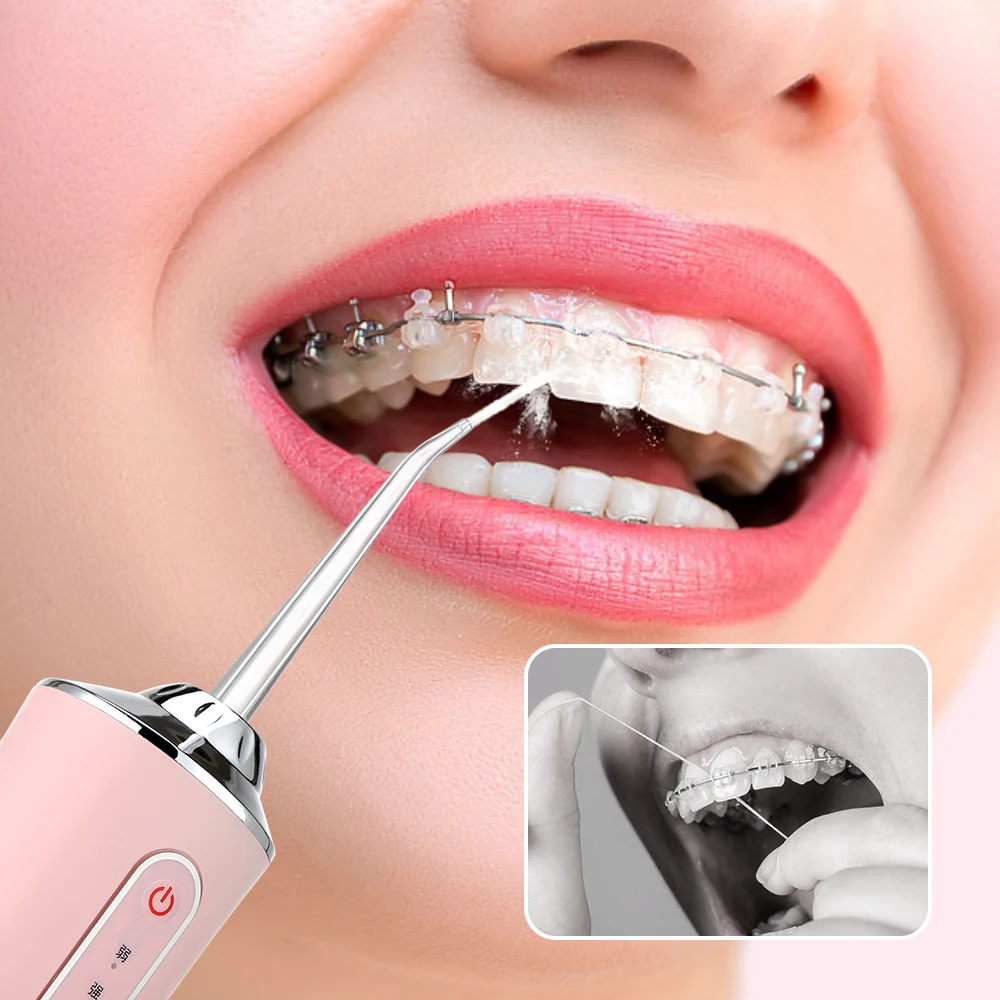In the realm of dental care, water flossers have emerged as a cutting-edge alternative to traditional flossing. These innovative devices utilize a stream of pulsating water to remove debris and plaque between teeth and along the gum line. As the importance of oral hygiene continues to gain recognition, understanding the water flosser benefits of water flossers becomes pivotal. In this article, we will delve into the various advantages of using water flossers, shedding light on how they can enhance your oral health and overall well-being.
Benefits of Water Flosser Over Traditional Methods
Water flossers offer several advantages over traditional string floss, making them a preferred choice for many. Here are some key water flosser benefits:

- Enhanced Plaque Removal: Water flossers use a high-pressure stream of water to remove plaque and food particles from teeth and gum lines effectively. This method reaches areas that traditional floss might miss, particularly below the gumline and between tightly packed teeth.
- Gentle on Gums: Unlike string floss, which can sometimes cause cuts or irritation, water flossers provide a gentle cleaning process. This reduces the risk of bleeding gums, especially for those with sensitive gums or gingivitis.
- Ideal for Dental Appliances: For individuals with braces, bridges, or implants, water flossers are exceptionally beneficial. They can navigate around the components of these devices easily, preventing the buildup of plaque and debris, which are often challenging to clean with traditional floss.
- Convenience and Efficiency: Water flossing is generally faster and less technique-sensitive than traditional flossing. It requires less manual dexterity, which is advantageous for people with arthritis or other conditions that affect hand strength.
- Reduced Inflammation and Infection: Regular use of a water flosser can lead to reduced gum inflammation and lower the risk of periodontal infections by efficiently cleaning deep between teeth and under the gum line.
With these water flosser benefits, it not only offer a highly effective way to maintain oral hygiene but also enhance user comfort and convenience.
How Water Flossers Reach Difficult Areas
Water flossers excel in cleaning hard-to-reach spots in your mouth. The design includes a slim, targeted tip that channels a pulsating stream of water. This stream penetrates deep between teeth and below the gumline. It accesses tight spaces that traditional floss can’t reach easily.
For example, back teeth which are tricky for floss to navigate, are effortlessly cleaned using a water flosser. The device also maneuvers around braces, bridgework, and other dental appliances effectively. This ensures comprehensive cleaning without the risk of damaging orthodontic works or implants.
By using a high-pressure water jet, a water flosser dislodges food particles trapped in interdental spaces. This action helps prevent the buildup of plaque which can lead to cavities and gum diseases. With its ability to adjust the pressure, individuals can customize the intensity for a comfortable yet thorough cleaning experience. This adaptability makes water flossers ideal for sensitive teeth and gums, reducing discomfort during oral hygiene routines.
In summary, water flossers offer an efficient way to reach and clean areas that are often missed by traditional flossing methods, promoting better oral health and hygiene.
The Impact of Water Flossing on Gum Health
Water flossing has a significant impact on maintaining and improving gum health. Here are several ways that water flossing contributes to healthier gums:
- Reduces Gingivitis and Gum Disease: Using a water flosser is shown to decrease the risk of gingivitis by flushing out bacteria that cause gum infections.
- Decreases Inflammation: The gentle massage effect of water flossing can reduce gum inflammation and improve blood flow, enhancing gum health.
- Minimizes Bleeding: People with sensitive gums or those prone to bleeding from traditional flossing can benefit from the non-abrasive nature of water flossing.
- Effectively Cleans Periodontal Pockets: Water flossers can reach deeper into periodontal pockets than string floss, removing harmful bacteria that contribute to gum recession and disease.
- Encourages Regular Use: Due to its ease of use, individuals are more likely to make water flossing a part of their daily routine, resulting in better long-term gum health.
Incorporating water flossing into your dental care routine can lead to a noticeable improvement in gum health, helping to prevent the onset of more serious periodontal issues.
Water Flossers for Dental Work: Braces, Bridges, and Implants
Water flossers are a game-changer for those with dental work such as braces, bridges, and implants. These devices come engineered to clean around and beneath these dental appliances. Let’s delve into how exactly water flossers cater to each of these dental enhancements.
For Braces
Braces come with nooks and crannies that can trap food and plaque. A water flosser easily cuts through these troubles. It jets water into tight spaces, rinsing away debris that a toothbrush or traditional floss might miss. Users can enjoy clean teeth without the hassle of working around wires and brackets.
For Bridges
Dental bridges link one or more fake teeth between two real ones. Often, cleaning under a bridge proves tricky. A water flosser offers easy, effective cleaning beneath the bridge. Users can target water streams directly where needed, preventing plaque and bad breath.
For Implants
Implants mimic real teeth, anchored into the jawbone. Regular floss can risk pulling on an implant. On the other hand, water flossers gently clean around implants. They avoid the tug that may occur with traditional floss, making them perfectly suited for implant care.
In conclusion, water flossers bring unmatched comfort and cleaning to dental work care. They prevent complications and maintain dental health with ease. For anyone navigating the challenges of cleaning dental work, a water flosser is the smart choice.
 Ease of Use: Water Flossers vs Traditional Floss
Ease of Use: Water Flossers vs Traditional Floss
Comparing the ease of use between water flossers and traditional string floss reveals clear distinctions. Let’s consider the user-friendly aspects of water flossers and how they stack up against conventional floss.
- Simplicity in Operation: Water flossers are straightforward to operate. Users fill the reservoir with water, select the pressure setting, and guide the tip along their gum line. Traditional floss requires careful handling and skill to avoid hurting the gums.
- Time Efficiency: For many, water flossing is notably faster. The device quickly cleans all areas without the need for manual threading between each tooth.
- Ease for All Ages: Due to their design, water flossers are especially suited for users of all ages. They are beneficial for children who are still developing fine motor skills and for older adults with limited dexterity.
- Cleanliness and Mess: Initially, users may find water flossers a bit messy as they master the technique. However, once accustomed, it’s a cleaner process, unlike traditional floss which can sometimes be unhygienic or require cleanup of debris.
- Adaptability: With a range of attachments and pressure settings, water flossers adapt to different needs, such as sensitive teeth or orthodontic care. Traditional floss doesn’t offer this level of customization.
In summary, water flossers outshine traditional floss in terms of ease of use, offering a hassle-free and adaptable approach to oral hygiene that encourages consistent use.
Water Flosser Features to Consider When Purchasing
When looking to buy a water flosser, several features warrant careful consideration to ensure you get the most suitable model for your needs. Here are some key aspects to keep in mind:
- Adjustable Pressure Settings: Different people have varying sensitivities in their gums. Look for a water flosser that offers multiple pressure settings. This allows you to find a comfortable intensity that suits your needs, protecting sensitive gums while still delivering a thorough clean.
- Various Tip Attachments: Depending on your dental work or specific oral health needs, different tip attachments can enhance your flossing experience. For example, orthodontic tips work well for braces, and plaque seeker tips are great for more intensive cleaning around dental implants or crowns.
- Portability: If you travel frequently or prefer the flexibility to floss in various locations, consider a cordless water flosser. These are battery-operated and typically more compact, making them easy to pack and use on the go.
- Ease of Use: Look for water flossers with user-friendly designs. Features such as a non-slip handle, easy-to-fill water reservoirs, and straightforward controls enhance the usability of the device.
- Water Capacity: The reservoir size determines how long you can floss before needing to refill. A larger reservoir might be beneficial if you dislike refilling it often, but keep in mind this can also impact the device’s size and portability.
- Durability and Warranty: Quality is crucial for long-term satisfaction. Check the build quality of the water flosser and whether it comes with a warranty. This can provide peace of mind regarding the longevity and functionality of your purchase.
By considering these attributes, you can choose a water flosser that not only meets your specific dental needs but also offers ease and convenience, transforming your daily oral hygiene routine.
The Role of Water Flossers in Preventing Oral Diseases
Water flossers play a crucial role in preventing oral diseases. By effectively cleaning areas that are hard to reach with traditional floss, they significantly reduce the risk of cavities and gum disease. Here’s how they contribute to oral health:
- Deep Cleaning: Water flossers can remove plaque and bacteria deep between teeth and below the gumline, areas often missed by brushing and traditional flossing.
- Prevent Cavities: By removing trapped food particles and plaque, water flossers help to prevent the formation of cavities in tight spaces between teeth.
- Gum Disease Prevention: Regular use of a water flosser can reduce the risk of gum disease by minimizing the conditions in which harmful bacteria thrive.
- Decrease Biofilm: Water flossers disrupt and wash away biofilm, a sticky coating where bacteria can grow, further protecting against oral diseases.
- Better Breath: By keeping the mouth clean, especially in hard-to-reach areas, water flossers help prevent the buildup of bacteria that can cause bad breath, a common sign of oral disease.
Making water flossing a daily habit can enhance your oral hygiene regimen. This can lead to fewer dental issues and visits, saving you time and discomfort in the long run.
 Professional Perspectives on Water Flossing vs Traditional Flossing
Professional Perspectives on Water Flossing vs Traditional Flossing
Dental professionals today often weigh in on the discussion between water flossing and traditional flossing. Their expertise provides valuable insights about which method could be more beneficial for your oral health. Here is what they have to say:
- Effectiveness: Many dentists agree that water flossers can be more effective than traditional floss, especially for those with braces, dental implants, or bridges. The water jet cleans hard-to-reach areas that string might miss.
- Compliance: Dental experts observe that patients are more likely to consistently use water flossers because they find the process easier and more comfortable. Consistent use leads to better oral hygiene and lower incidence of gum disease.
- Gentleness: Periodontists, specialists in gum health, often recommend water flossers for patients with sensitive gums or those suffering from gingivitis. The gentle stream of water reduces discomfort and irritation compared to traditional floss.
- Versatility: Orthodontists may suggest water flossers for patients with braces, as they efficiently clean between brackets and wires without the risk of snagging or causing damage, thus maintaining orthodontic integrity.
In conclusion, while both water flossing and traditional string floss have their place in oral hygiene routines, dental professionals recognize the unique advantages of water flossers. These water flosser benefits include improved patient compliance, effective cleaning in difficult areas, and gentle care for sensitive gums. As always, it’s best to discuss with your own dentist or hygienist to tailor your oral care to your specific needs.
Concluding Thoughts on Water Flosser Benefits
Transitioning to a water flosser can significantly improve oral hygiene for individuals of all ages and dental needs. With enhanced plaque removal, better gum health, and a host of other benefits, water flossers represent a remarkable advancement in maintaining dental care. They offer an easy-to-use, effective, and environmentally friendly solution for oral hygiene. Ultimately, embracing water flosser benefits means investing in a healthier future for your teeth and gums. By incorporating this device into your daily routine, you’re not just making a passing change; you’re making a lasting commitment to your overall oral health.